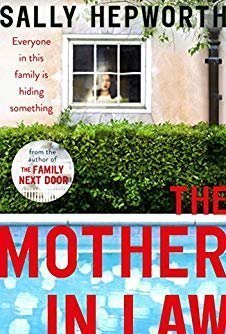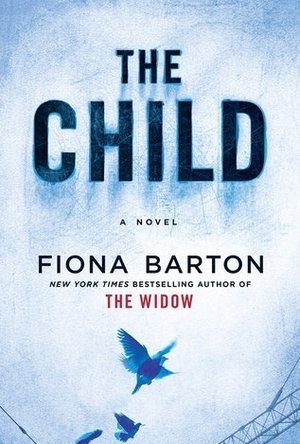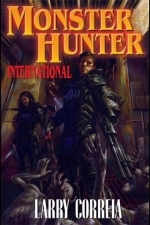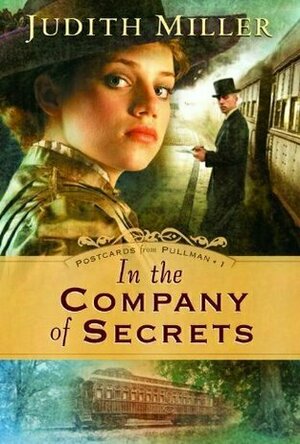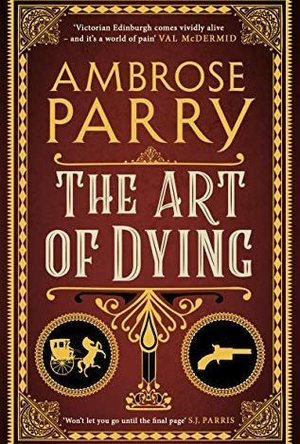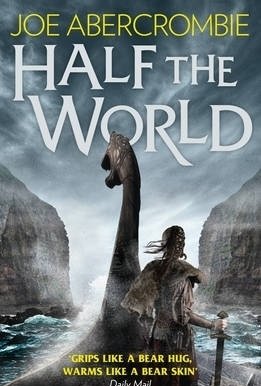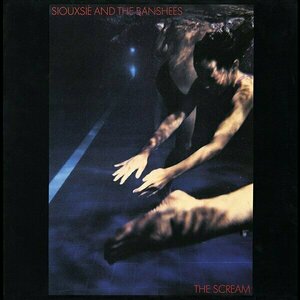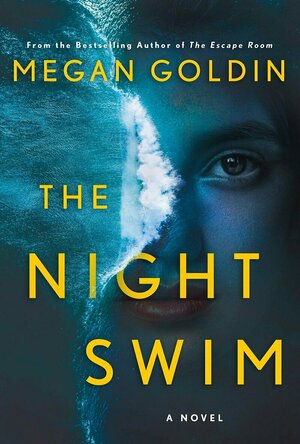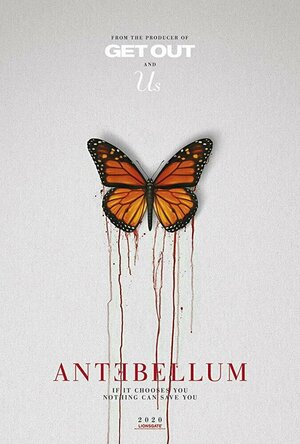Search
Kristy H (1252 KP) rated The Mother-in-Law in Books
May 21, 2019
Lucy was so excited to meet Diana, the mother of her boyfriend, Ollie. Lucy's mother died when she was a teen and she hoped for a good relationship with her hopeful mother-in-law. But Lucy and Diana don't get off to an easy start--Diana has a rigid set of views formed by her own life experiences. From simply co-existing to arguing about parenting to eventual fisticuffs, their relationship is volatile. Then, one night, Lucy and Ollie hear a knock on their door. The police arrive and tell them that Diana is dead in an apparent suicide. But as the investigation progresses, it looks as if there is more to the story. Everyone in the family has history with Diana; but did someone actually kill her?
"'Then I'm very sorry to inform you,' the policewoman starts, and I close my eyes because I already know what she is going to say. My mother-in-law is dead."
This was my first Sally Hepworth novel, and I have heard good things, so I was excited to read some of her work. I found it to be a fast read, with a set of engaging characters. The book alternates between Lucy and Diana's point of view, with much of the story being told in the past. I found the format to be very effective; it worked very well at drawing you into the story and keeping you guessing at what was going on. Many parts of the story were told twice, in some ways, as both women told their side of the story, yet it never felt repetitive.
The main characters in this one are Lucy and Diana, but we have strong appearances from Ollie, his sister Antoinette "Nettie, " and Tom, Diana's husband. I can see why people enjoy Hepworth's novels--I felt very much a part of the story, and I was certainly stumped along the way. Sometimes there was a little too much rumination about mother-in-laws and the meaning of families for my taste, but oh well. I was too eager to find out what had happened to Diana.
"More importantly, you don't choose your mother-in-law. The cackling mercenaries of fate determine it all."
Overall, I really enjoyed my first Hepworth book. It was a quick, engaging, and interesting read that kept my interest.
I received a copy of this novel from St. Martin's Press and Netgalley in return for an unbiased review (thank you!).
"'Then I'm very sorry to inform you,' the policewoman starts, and I close my eyes because I already know what she is going to say. My mother-in-law is dead."
This was my first Sally Hepworth novel, and I have heard good things, so I was excited to read some of her work. I found it to be a fast read, with a set of engaging characters. The book alternates between Lucy and Diana's point of view, with much of the story being told in the past. I found the format to be very effective; it worked very well at drawing you into the story and keeping you guessing at what was going on. Many parts of the story were told twice, in some ways, as both women told their side of the story, yet it never felt repetitive.
The main characters in this one are Lucy and Diana, but we have strong appearances from Ollie, his sister Antoinette "Nettie, " and Tom, Diana's husband. I can see why people enjoy Hepworth's novels--I felt very much a part of the story, and I was certainly stumped along the way. Sometimes there was a little too much rumination about mother-in-laws and the meaning of families for my taste, but oh well. I was too eager to find out what had happened to Diana.
"More importantly, you don't choose your mother-in-law. The cackling mercenaries of fate determine it all."
Overall, I really enjoyed my first Hepworth book. It was a quick, engaging, and interesting read that kept my interest.
I received a copy of this novel from St. Martin's Press and Netgalley in return for an unbiased review (thank you!).
As a worker tears apart an old house under construction in London, he makes an unsettling discovery: tiny bones. The police believe they belong to a baby who was buried years earlier. The story catches the eye of journalist Kate Waters, who immediately wants to determine the child's identity. Her research leads her to a missing child from several decades in the past: a stolen baby, who was never found. Kate finds herself drawn into the missing baby's case and the lives of several women: Angela, a mother who had her baby stolen many years ago; Emma, who once lived on the block where the baby's bones were found; and Jude, Emma's mother.
I really enjoyed Barton's previous novel, The Widow, and I have to say that THE CHILD did not disappoint. It's hard exactly to describe her books, but they have some sort of power over you, drawing you into their narrative and making it difficult to come back to reality until you've reached the end. Much like THE WIDOW, we're presented with a cast of disparate characters-not all of whom are particularly likeable. I hadn't realized, for some reason, that THE CHILD would feature Kate again--a journalist we previously met in Barton's earlier book. I found Kate a much more engaging protagonist this time around: she came across as more human and flawed.
Otherwise, the novel focuses on timid, depressed Emma and her difficult relationship with her mother, Jude, who kicked Emma out of the house at the sixteen. Each woman has a turn at the narration, as does Angela, who is still reeling from having her baby stolen from the hospital (and never found). Barton does a skillful job weaving their stories together. Everything unfolds in bits and pieces as the tale progresses in the eyes of each of our narrators. For me, it was extremely riveting: just as one shocking piece came out, another one would fall into place.
Barton also gives us an excellent look into the journalism business, with a focus on how Kate writes her stories, with a strong emphasis on real (face-to-face, non-Internet-based) research. We see firsthand how the current social media craze is affecting the newspaper world. It's refreshing, as we get to basically see a crime/story solved, yet not necessarily through the lens of a typical police drama.
Overall, I really enjoyed this one. I figured out parts of it as it went along, but found it to be a very compelling read. Definitely worth picking up.
I really enjoyed Barton's previous novel, The Widow, and I have to say that THE CHILD did not disappoint. It's hard exactly to describe her books, but they have some sort of power over you, drawing you into their narrative and making it difficult to come back to reality until you've reached the end. Much like THE WIDOW, we're presented with a cast of disparate characters-not all of whom are particularly likeable. I hadn't realized, for some reason, that THE CHILD would feature Kate again--a journalist we previously met in Barton's earlier book. I found Kate a much more engaging protagonist this time around: she came across as more human and flawed.
Otherwise, the novel focuses on timid, depressed Emma and her difficult relationship with her mother, Jude, who kicked Emma out of the house at the sixteen. Each woman has a turn at the narration, as does Angela, who is still reeling from having her baby stolen from the hospital (and never found). Barton does a skillful job weaving their stories together. Everything unfolds in bits and pieces as the tale progresses in the eyes of each of our narrators. For me, it was extremely riveting: just as one shocking piece came out, another one would fall into place.
Barton also gives us an excellent look into the journalism business, with a focus on how Kate writes her stories, with a strong emphasis on real (face-to-face, non-Internet-based) research. We see firsthand how the current social media craze is affecting the newspaper world. It's refreshing, as we get to basically see a crime/story solved, yet not necessarily through the lens of a typical police drama.
Overall, I really enjoyed this one. I figured out parts of it as it went along, but found it to be a very compelling read. Definitely worth picking up.
Kristy H (1252 KP) rated Dear Thing in Books
Feb 13, 2018
Claire and Ben have a seemingly ideal life - good jobs, a beautiful house, and what seems to be a strong relationship. But they've been trying to have a baby for years, and it's starting to take a toll on them and their marriage. After yet another failed round of IVF, Claire is done. She cannot put her body (and her heart) through this pain yet again. Ben is upset and not ready to give up. So when his best friend, Romily, drunkenly offers to act as a surrogate for the couple, Ben jumps on it! Why not? Romily -- already a single mom to Posie -- seems like the perfect choice, after all. And Romily does want to give Ben and Claire the baby they so desire. But if she really admits it, she really wants to give *Ben* this baby: Ben, whom Romily has secretly loved since university. Will Romily really be able to give up this baby? And, can she give up Ben?
This was a lovely and fascinating book, which I devoured in the span of about 24 hours. It's an extremely quick read with well-drawn characters who immediately pull you into the story. Having struggled with infertility myself, I certainly identified with Claire, but also found pieces of Romily and Ben to love as well. One of the strengths of Cohen's book is that there is no one true "winner" here - you don't go in and immediately find yourself rooting for one of the women and their "side," which I think benefits the entire book and its storyline.
Some of the plot is almost a little too unbelievable (and sometimes I'd like to swat clueless Ben in the head), but most of it is made up for by the realism of the characters and their emotions. Claire, especially, in her fertility struggle, is true to form, as is Romily, as she struggles with her feelings for Ben. Romily's young daughter Posie is a wonderful character - you will immediately fall for spirited, sweet Posie.
To me, the only weakness of this book was the ending, which seemed a little to pat and simplified for all the complicated emotions the characters had been struggling with throughout. That's the only thing preventing a 4-star rating. Still, a solid 3.5 read and, really, a lovely and worthwhile book. It gets you out of your head for a bit.
I received an ARC of this novel from Netgalley (thank you!); it is available for U.S. publication on 3/29. You can check out a review of this novel and many others on my <a href="http://justacatandabookatherside.blogspot.com/">blog</a>;.
This was a lovely and fascinating book, which I devoured in the span of about 24 hours. It's an extremely quick read with well-drawn characters who immediately pull you into the story. Having struggled with infertility myself, I certainly identified with Claire, but also found pieces of Romily and Ben to love as well. One of the strengths of Cohen's book is that there is no one true "winner" here - you don't go in and immediately find yourself rooting for one of the women and their "side," which I think benefits the entire book and its storyline.
Some of the plot is almost a little too unbelievable (and sometimes I'd like to swat clueless Ben in the head), but most of it is made up for by the realism of the characters and their emotions. Claire, especially, in her fertility struggle, is true to form, as is Romily, as she struggles with her feelings for Ben. Romily's young daughter Posie is a wonderful character - you will immediately fall for spirited, sweet Posie.
To me, the only weakness of this book was the ending, which seemed a little to pat and simplified for all the complicated emotions the characters had been struggling with throughout. That's the only thing preventing a 4-star rating. Still, a solid 3.5 read and, really, a lovely and worthwhile book. It gets you out of your head for a bit.
I received an ARC of this novel from Netgalley (thank you!); it is available for U.S. publication on 3/29. You can check out a review of this novel and many others on my <a href="http://justacatandabookatherside.blogspot.com/">blog</a>;.
Lilyn G - Sci-Fi & Scary (91 KP) rated Monster Hunter International in Books
Jun 2, 2018
One book - I'm hooked!
Well, heck. That’s just what I needed. Another bloody series to get hooked on. If the second book is as good as the first, I’ll be well and truly hooked. So, honestly, I’m kind of hoping the second book sucks a bit so I can get off this fan train and save myself some money.
So, in case that first paragraph wasn’t very clear: I loved Monster Hunter International. I was hooked from the beginning, and happily went along for the whole crazy, monster-killing ride. It was just different enough to keep me interested. Oliver Wyman did a great job with the narration. His regular reading voice is soothing, and his voices are very different from each other. He never made me wince like some readers (ie: the guy who read King’s IT) do.
I’m not a gun nut. Not really. I mean, I don’t currently own one. I don’t see the need for automatic rifles. Blah, blah, blah. I do, however, like to shoot them and I like book and screen violence. Therefore, the sheer amount of shoot-em-ups and physical thumpings that went on in this book made me very happy. Pitt, Holly, and Harbinger (and the plot) were just a happy bonus.
One of the things that surprised me was that Monster Hunter International hit what would normally be a climax and cliffhanger scene with about six hours left to go in the audio. After how intense that particular scene was, I wondered how Correia could go on for six more hours. But, I trusted him, and his ass-kicking game had been strong so far, so I listened on. He managed quite well.
This book hit all the high points for me. The main character (Pitt) wasn’t perfect, wasn’t even sure of himself, didn’t feel like he was God’s gift to women, etc. Julie seemed a bit too perfect, but she didn’t have a lot of screen time, so she was easy to forget about. Holly and Trip were great side-kicks. However, Harbinger was the one that won me over. I spent half the novel going “Okay, something’s definitely not right about him? What..” and then when it was revealed, I was totally “HOLY CRAP!” Because I did not expect that.
I am telling you right now, if Harbinger dies in one of the Monster Hunter International books, I will immediately stop reading the series.
Epic fights, interesting story, fun characters, and a great narrator all combined to make Monster Hunter International a clear winner. Highly recommend this book!
So, in case that first paragraph wasn’t very clear: I loved Monster Hunter International. I was hooked from the beginning, and happily went along for the whole crazy, monster-killing ride. It was just different enough to keep me interested. Oliver Wyman did a great job with the narration. His regular reading voice is soothing, and his voices are very different from each other. He never made me wince like some readers (ie: the guy who read King’s IT) do.
I’m not a gun nut. Not really. I mean, I don’t currently own one. I don’t see the need for automatic rifles. Blah, blah, blah. I do, however, like to shoot them and I like book and screen violence. Therefore, the sheer amount of shoot-em-ups and physical thumpings that went on in this book made me very happy. Pitt, Holly, and Harbinger (and the plot) were just a happy bonus.
One of the things that surprised me was that Monster Hunter International hit what would normally be a climax and cliffhanger scene with about six hours left to go in the audio. After how intense that particular scene was, I wondered how Correia could go on for six more hours. But, I trusted him, and his ass-kicking game had been strong so far, so I listened on. He managed quite well.
This book hit all the high points for me. The main character (Pitt) wasn’t perfect, wasn’t even sure of himself, didn’t feel like he was God’s gift to women, etc. Julie seemed a bit too perfect, but she didn’t have a lot of screen time, so she was easy to forget about. Holly and Trip were great side-kicks. However, Harbinger was the one that won me over. I spent half the novel going “Okay, something’s definitely not right about him? What..” and then when it was revealed, I was totally “HOLY CRAP!” Because I did not expect that.
I am telling you right now, if Harbinger dies in one of the Monster Hunter International books, I will immediately stop reading the series.
Epic fights, interesting story, fun characters, and a great narrator all combined to make Monster Hunter International a clear winner. Highly recommend this book!
BookwormMama14 (18 KP) rated In the Company of Secrets (Postcards from Pullman #1) in Books
Jan 2, 2019
(There are some spoilers in this review)
What happens when you build an entire life on a foundation of lies? Consequences!
Olivia travels to Pullman, Illinois from England with the Lady Charlotte. Charlotte is unmarried and pregnant. In order to be hired for a position as the assistant chef at the Hotel and to protect Charlotte's honor, they fabricate a pack of lies and stories about who they are. As time progresses, Olivia's closest friends Fred and his mother, Mrs. DeVault, as well as her cousin Albert and his girlfriend Martha are all deceived by who they are. In the end Olivia realizes the importance of honesty and seeks the Lord's forgiveness for what she has done. She tries to begin a fresh in her walk with the Lord. However, she keeps the truth about the lies hidden. She is eventually found out and has to face the consequences.
I am very baffled by this book. It drove me crazy at parts and I wanted to stop reading it, but I was also intrigued to see how it would all play out. I was disappointed in the end that the loose ends were not tied up. I understand that it is a series, however it felt very confusing at the close of the book. The two main characters were the reasons why I wanted to put the book down. Charlotte has her baby and neglects him and eventually abandons him. I know that this happens in the real world, but Charlotte's snobbery is the main reason behind her poor attitude towards the baby. Being a mother of 2 small children, this made me quite upset. Olivia is extremely naive when it comes to men and seems to be quite spineless when it comes to standing up for herself. She constantly lets herself get walked over and lives in complete fear that someone will find her out. I read for enjoyment and I prefer to read about women who are strong, truthful and stand up for what is right. I did enjoy the historical side of this book. Although, I am not quite sure where the "Postcards" come into play, learning a little about Pullman and the railworks in 1892 was quite interesting.
Even though I have conflicting feelings regarding this book, I am curious to see how Olivia's character progresses. Seeing as how the library does not yet have this series in electronic form though, I will not be continuing. I was able to purchase this book for free at Barnes & Noble.
Bethany House Publishers
What happens when you build an entire life on a foundation of lies? Consequences!
Olivia travels to Pullman, Illinois from England with the Lady Charlotte. Charlotte is unmarried and pregnant. In order to be hired for a position as the assistant chef at the Hotel and to protect Charlotte's honor, they fabricate a pack of lies and stories about who they are. As time progresses, Olivia's closest friends Fred and his mother, Mrs. DeVault, as well as her cousin Albert and his girlfriend Martha are all deceived by who they are. In the end Olivia realizes the importance of honesty and seeks the Lord's forgiveness for what she has done. She tries to begin a fresh in her walk with the Lord. However, she keeps the truth about the lies hidden. She is eventually found out and has to face the consequences.
I am very baffled by this book. It drove me crazy at parts and I wanted to stop reading it, but I was also intrigued to see how it would all play out. I was disappointed in the end that the loose ends were not tied up. I understand that it is a series, however it felt very confusing at the close of the book. The two main characters were the reasons why I wanted to put the book down. Charlotte has her baby and neglects him and eventually abandons him. I know that this happens in the real world, but Charlotte's snobbery is the main reason behind her poor attitude towards the baby. Being a mother of 2 small children, this made me quite upset. Olivia is extremely naive when it comes to men and seems to be quite spineless when it comes to standing up for herself. She constantly lets herself get walked over and lives in complete fear that someone will find her out. I read for enjoyment and I prefer to read about women who are strong, truthful and stand up for what is right. I did enjoy the historical side of this book. Although, I am not quite sure where the "Postcards" come into play, learning a little about Pullman and the railworks in 1892 was quite interesting.
Even though I have conflicting feelings regarding this book, I am curious to see how Olivia's character progresses. Seeing as how the library does not yet have this series in electronic form though, I will not be continuing. I was able to purchase this book for free at Barnes & Noble.
Bethany House Publishers
Ross (3284 KP) rated The Art of Dying in Books
Aug 15, 2019
Another fantastic historical medical thriller
* I received an advance copy of this book from the publishers and NetGalley in exchange for an honest review *
Ambrose Parry returns with a second book set in Victorian Edinburgh during its medical and scientific revolution. Where the first book centred around Sir James Young Simpson (and others!) search for the perfect anaesthetic, this book focuses more on the man and his reputation. Edinburgh is still a thriving centre of medical science, and reputation is everything. The book starts with Simpson's reputation being besmirched by rivals and former colleagues, looking to suggest negligence. Will Raven and Sarah Fisher team up again to gradually peel away at the facts underlying the case in question and reveal some disturbing trends.
While the plot itself, and its numerous twists and turns, is not exactly ground-breaking, it is excellently told, with clues scattered here, there and everywhere. And to weave this tale around actual historic events and cases really appeals to my mind.
This book, and its predecessor, is one of the most immersive books I have read in a long time. The reader really gets to feel as if they are in Victorian era Edinburgh. Admittedly, I read a fair part of this book while commuting to work in Edinburgh (indeed my children were all born in the Sir James Young Simpson maternity unit of the Edinburgh Royal Infirmary), but I feel the reader with less connection to the city would still get that same feeling.
There is again an underlying message of the treatment of women during those times (and indeed today), both how they are treated in the household and society and also their opportunities for a career and to explore their skills. Sarah Fisher is a strong female character who tolerates her place in society but yearns to break through the glass ceiling, proving her worth to all and sundry as she goes.
In contrast, Will Raven is somewhat spineless in this regard. He sees the issues with society but doesn't do much to act on it. Indeed, he starts the book having run away from Edinburgh and his chances of a relationship with a mere housekeeper, for fear of his heart dooming his medical career. Raven does get some amount of development, both in terms of his medical career, and also in terms of becoming the Victorian equivalent of "woke".
Parry's prose is fantastic and she (they?) truly allow the reader to feel the story unfold around them.
An utterly wonderful book with some interesting history lessons and important messages about the past that should help us build a fairer society today.
Ambrose Parry returns with a second book set in Victorian Edinburgh during its medical and scientific revolution. Where the first book centred around Sir James Young Simpson (and others!) search for the perfect anaesthetic, this book focuses more on the man and his reputation. Edinburgh is still a thriving centre of medical science, and reputation is everything. The book starts with Simpson's reputation being besmirched by rivals and former colleagues, looking to suggest negligence. Will Raven and Sarah Fisher team up again to gradually peel away at the facts underlying the case in question and reveal some disturbing trends.
While the plot itself, and its numerous twists and turns, is not exactly ground-breaking, it is excellently told, with clues scattered here, there and everywhere. And to weave this tale around actual historic events and cases really appeals to my mind.
This book, and its predecessor, is one of the most immersive books I have read in a long time. The reader really gets to feel as if they are in Victorian era Edinburgh. Admittedly, I read a fair part of this book while commuting to work in Edinburgh (indeed my children were all born in the Sir James Young Simpson maternity unit of the Edinburgh Royal Infirmary), but I feel the reader with less connection to the city would still get that same feeling.
There is again an underlying message of the treatment of women during those times (and indeed today), both how they are treated in the household and society and also their opportunities for a career and to explore their skills. Sarah Fisher is a strong female character who tolerates her place in society but yearns to break through the glass ceiling, proving her worth to all and sundry as she goes.
In contrast, Will Raven is somewhat spineless in this regard. He sees the issues with society but doesn't do much to act on it. Indeed, he starts the book having run away from Edinburgh and his chances of a relationship with a mere housekeeper, for fear of his heart dooming his medical career. Raven does get some amount of development, both in terms of his medical career, and also in terms of becoming the Victorian equivalent of "woke".
Parry's prose is fantastic and she (they?) truly allow the reader to feel the story unfold around them.
An utterly wonderful book with some interesting history lessons and important messages about the past that should help us build a fairer society today.
Phil Leader (619 KP) rated Half the World in Books
Nov 14, 2019
Father Yarvi has a problem. He is minister for Gettland but the High King is determined to engineer a war to remove Gettland from the map. Yarvi needs allies but with half the world swearing allegiance to the High King they may be in short supply.
Brand has a problem. He wants to be a warrior and do good. But he finds that doing good does not always go down well with other people.
Thorn is a problem. She wants to be a warrior like her father, but in Gettland women don't fight and despite her abilities with a sword she is seen as an embarrassment. When an accident in training happens it seems like the perfect excuse to get rid of her once and for all.
This is the second book of a young adult trilogy set in the Shattered Sea. Told from the point of view of both Thorn and Brand as they journey across half the world with Father Yarvi in search of allies this is also a journey of discovery for the two of them as they find out who they really are and what they really stand for.
As would be expected from Abercrombie the journey they undertake is fairly brutal involving physical hardship, battles and meetings with dangerous and powerful rulers. The crew of the boat start off as a rough bunch of (mostly) strangers but bonds are forged between them. As usual characterisaton is excellent and the development of both Thorn and Brand in their different ways is very well done. Abercrombie really does have a magic touch in providing characters that do not fit into the usual rough and tough warrior mould. Each has their own story and their own personality. As usual the female characters are easily as strong as the male ones; Abercrombie is an equal opportunity employer of characters.
I was worried that the ending would use the oldest fantasy trope in the book but I needn't have been concerned. The author is an old hand at setting up expectations on standard epic fantasy lines and then suddenly twisting them a different way and he does that a number of times in this novel.
Sterling work, gritty and harsh as always with that wonderful touch of dark humour from the characters and with a story that drives along leaving the reader guessing all the way.
Rating: Lots of fight scenes, a couple of non-explicit sexual scenes and some scatalogical swearing from the the saltier characters but still suitable for a 'young adult' (or indeed adult) reader.
Brand has a problem. He wants to be a warrior and do good. But he finds that doing good does not always go down well with other people.
Thorn is a problem. She wants to be a warrior like her father, but in Gettland women don't fight and despite her abilities with a sword she is seen as an embarrassment. When an accident in training happens it seems like the perfect excuse to get rid of her once and for all.
This is the second book of a young adult trilogy set in the Shattered Sea. Told from the point of view of both Thorn and Brand as they journey across half the world with Father Yarvi in search of allies this is also a journey of discovery for the two of them as they find out who they really are and what they really stand for.
As would be expected from Abercrombie the journey they undertake is fairly brutal involving physical hardship, battles and meetings with dangerous and powerful rulers. The crew of the boat start off as a rough bunch of (mostly) strangers but bonds are forged between them. As usual characterisaton is excellent and the development of both Thorn and Brand in their different ways is very well done. Abercrombie really does have a magic touch in providing characters that do not fit into the usual rough and tough warrior mould. Each has their own story and their own personality. As usual the female characters are easily as strong as the male ones; Abercrombie is an equal opportunity employer of characters.
I was worried that the ending would use the oldest fantasy trope in the book but I needn't have been concerned. The author is an old hand at setting up expectations on standard epic fantasy lines and then suddenly twisting them a different way and he does that a number of times in this novel.
Sterling work, gritty and harsh as always with that wonderful touch of dark humour from the characters and with a story that drives along leaving the reader guessing all the way.
Rating: Lots of fight scenes, a couple of non-explicit sexual scenes and some scatalogical swearing from the the saltier characters but still suitable for a 'young adult' (or indeed adult) reader.
Shirley Manson recommended Scream by Siouxsie & The Banshees in Music (curated)
Kristy H (1252 KP) rated The Night Swim: A Novel in Books
Sep 17, 2020
Dark, timely and propulsive thriller
Rachel Krall, from the popular Guilty or Not Guilty true crime podcast, finds herself in the town of Neapolis, North Carolina for season three. It's the first time she's covered a live trial, and it's a divisive rape trial no less. A high school girl "K" has accused popular swimmer Scott Blair of raping her. It's set the town on edge and brought up lots of questions about reputations and who can be believed. As Rachel arrives in Neapolis, she's shocked to find a letter on her car--rarely is the radio host recognized in public. But someone in the town wants her help unlocking the mysteries of what happened to her sister over twenty-five years ago. Jenny Stills' death--at sixteen--was ruled a drowning, but the letter writer insists she was murdered, and they want Rachel to help her find the killer. Quickly the past and present intertwine, as Rachel realizes the two cases may be connected.
"That's why I'm writing to you, Rachel. Jenny's killer will be there. In that town. Maybe that courtroom. It's time for justice to be done. You're the only one who can help me deliver it."
Goldin offers us an excellent thriller with a pervasive eerie feel. While, for the most part, I find myself tired of podcast tales, The Night Swim offers an overall fresh take on the genre, weaving in Rachel's episodes about the trial with her own investigation into both the current case and the Stills drowning. We also hear from the past, giving us even more insight into what happened to Jenny all those years ago. The result is a spellbinding, sometimes heartbreaking, read that's nearly impossible to put down.
I highly enjoyed putting the pieces together on this one--as they filter in via our various narratives. I had an early guess that proved to be right, but that didn't diminish my enjoyment of the book in any way. The ending was a little different, but overall, I was a big fan of the intersection of the two cases and the dark and timely themes this book brought up--rape, assault, and more. It offers an unflinching look at what women experience: and how rarely they are believed, trusted, or can turn to anyone.
Overall, this is an excellent, fast-paced thriller with two storylines that work well together. It's creepy and dark, with a strong, unforgettable message. 4 stars.
"That's why I'm writing to you, Rachel. Jenny's killer will be there. In that town. Maybe that courtroom. It's time for justice to be done. You're the only one who can help me deliver it."
Goldin offers us an excellent thriller with a pervasive eerie feel. While, for the most part, I find myself tired of podcast tales, The Night Swim offers an overall fresh take on the genre, weaving in Rachel's episodes about the trial with her own investigation into both the current case and the Stills drowning. We also hear from the past, giving us even more insight into what happened to Jenny all those years ago. The result is a spellbinding, sometimes heartbreaking, read that's nearly impossible to put down.
I highly enjoyed putting the pieces together on this one--as they filter in via our various narratives. I had an early guess that proved to be right, but that didn't diminish my enjoyment of the book in any way. The ending was a little different, but overall, I was a big fan of the intersection of the two cases and the dark and timely themes this book brought up--rape, assault, and more. It offers an unflinching look at what women experience: and how rarely they are believed, trusted, or can turn to anyone.
Overall, this is an excellent, fast-paced thriller with two storylines that work well together. It's creepy and dark, with a strong, unforgettable message. 4 stars.
Gareth von Kallenbach (980 KP) rated Antebellum (2020) in Movies
Sep 21, 2020
Janelle Monáe stars as Eden who at the start of the new film “Antebellum” is brought back to a Southern Plantation against her will by Union Soldiers. The consequences of her escape attempt are brutally taken out against two others as the rest of the plantation looks on in submissive silence.
Weeks later more slaves arrive and are given the rules by the brutal Overseer who demands silence and utter obedience at all times.
The slaves are made to work the fields and serve the plantation including the women being assigned to whichever soldier desires them.
Their plight grabs you from the start in its brutality as they have no rights, live in fear daily, and are subject to whatever whims those in charge desire and they are required to obey and suffer in silence.
One night after the General falls asleep after having his way with her; Eden awakens to a different reality. One set in the modern day where she is a wife, mother, and very successful author and activist. The film follows her life in the modern world before springing the twist which makes doing an in-depth review difficult without spoiling things. While I was able to predict the twist coming; it was still effective and chilling in how it was carried out.
The film does get a bit lax in the final act as it relies on too many Hollywood clichés which while highly entertaining for me undermined the messages of the film and the situation.
Gerard Bush and Christopher Rend both wrote and directed the film and there are some powerful and highly gripping moments to the film but it grabs you from the start and is compelling and deeply disturbing.
The cast is very strong and the film is unforgettable. My biggest issue with the film was the final act as I alluded to prior. The film tries to tie things up a bit too neatly yet fails to adequately explain key aspects of the story. The audience is given some information and forced to fill in the gaps for themselves which in many ways makes the film even more disturbing.
In the time of deep division in our country it is very upsetting to see how little has changed for many who do not see equality and justice applied equally and still live day to day with fear and uncertainty.
“Antebellum” is the rare film that entertains, informs, and makes you think and will remain with you after the movie ends.
4 stars out of 5
Weeks later more slaves arrive and are given the rules by the brutal Overseer who demands silence and utter obedience at all times.
The slaves are made to work the fields and serve the plantation including the women being assigned to whichever soldier desires them.
Their plight grabs you from the start in its brutality as they have no rights, live in fear daily, and are subject to whatever whims those in charge desire and they are required to obey and suffer in silence.
One night after the General falls asleep after having his way with her; Eden awakens to a different reality. One set in the modern day where she is a wife, mother, and very successful author and activist. The film follows her life in the modern world before springing the twist which makes doing an in-depth review difficult without spoiling things. While I was able to predict the twist coming; it was still effective and chilling in how it was carried out.
The film does get a bit lax in the final act as it relies on too many Hollywood clichés which while highly entertaining for me undermined the messages of the film and the situation.
Gerard Bush and Christopher Rend both wrote and directed the film and there are some powerful and highly gripping moments to the film but it grabs you from the start and is compelling and deeply disturbing.
The cast is very strong and the film is unforgettable. My biggest issue with the film was the final act as I alluded to prior. The film tries to tie things up a bit too neatly yet fails to adequately explain key aspects of the story. The audience is given some information and forced to fill in the gaps for themselves which in many ways makes the film even more disturbing.
In the time of deep division in our country it is very upsetting to see how little has changed for many who do not see equality and justice applied equally and still live day to day with fear and uncertainty.
“Antebellum” is the rare film that entertains, informs, and makes you think and will remain with you after the movie ends.
4 stars out of 5
